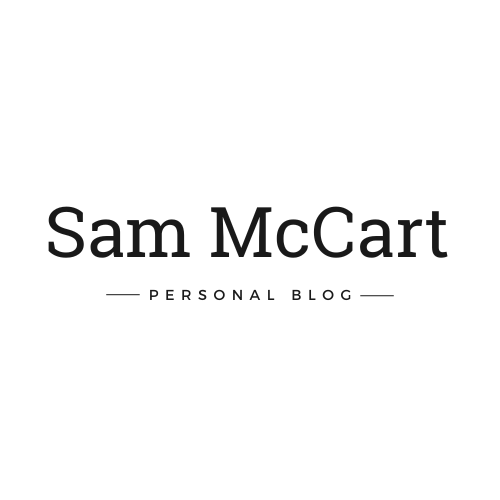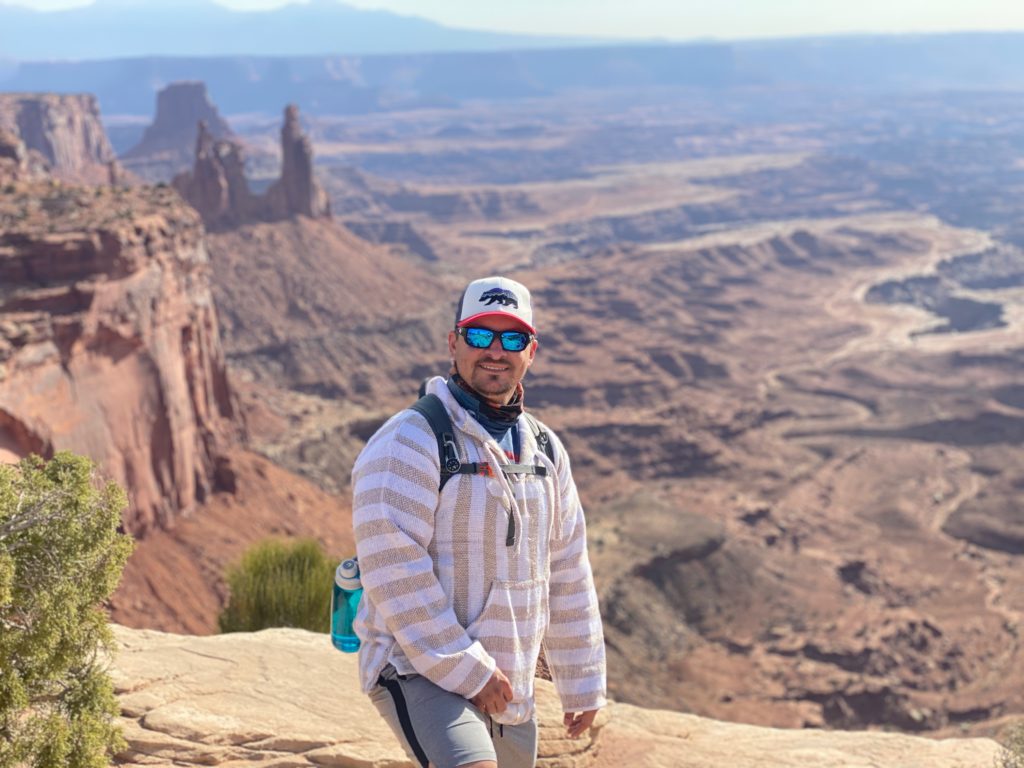I’m sure you’ve heard others say things like “I absolutely love what I do for a living,” or “I look forward to my alarm clock going off because that means I get to do what I love.” If you’re like me, you’ve probably read or heard these types of phrases and thought “Why can’t I find my passion,” or “What is wrong with me?” Or maybe you even think, “if only I could do what I like, I would be happy.” If these phrases (or any variation of them) sound like you, you’re in the right spot because, in this post, I’ll be going over 3 simple ways you can find your passion in life or, at least get started down the path to finding it.

MY JOURNEY TILL NOW
Currently, I’m 39 years old and am in the middle of what I consider to be a mid-life career crisis because, essentially, I have no idea what I want to do with my life. It is taking a toll on not just my professional life, but my personal life also.
For the past 4-6 years, I have been hopping around looking for that one thing that will light a fuse in me that leads to me saying one of the phrases above. Before 2018, however, I thought I knew the answer to the question; What is my passion?
At that time, I had been working for Enterprise Rent-A-Car and thought that my goal in life was to move up the corporate ladder, become an area manager, and then keep progressing toward group manager (basically making a lot of money at that point).
However, I’m sure you’ve heard that people don’t leave their jobs, they leave managers. Well, this is exactly what happened. I moved to a new city and started working with a new area manager and a new branch and assistant branch manager.
The problem wasn’t necessarily the personalities but the overall management of the branch. You see, the hours at Enterprise are 7:30a – 6p. When I was the assistant manager at my previous branch, we had that branch running like a fine-tuned machine and rarely stayed past 6:15 pm. However, at the new branch, it was a regular occurrence to stay at least until 6:30, if not 7 pm.
The other challenge was the motivational style of the area manager. Instead of being a nurturing leader, he was a condescending boss. If your sales were lacking, he would make fun of it instead of working with you to build up your skills/confidence/self-efficacy. Not the best way to win over your staff.
After about 6 months of this, I started just not to care, and my numbers followed suit. Now I admit this isn’t the best way to deal with this, and communicating your displeasure for a situation you’re not in favor of is the best course of action. Who knows, if I had communicated with management, maybe I would be in a different situation. But, maybe I would still not be “living my dream,” but I digress.
Eventually, I got a job with a healthcare staffing company and am still working in the field to this day. BUT (and it’s a big but), I am not happy whatsoever. I go to work every day dreading clocking in and counting the minutes until I can clock out. This unbearable cycle has led me to do some serious research into how I can find my passion.

Step #1: Look at your hobbies/likes
When I first read that I needed to look at my likes and/or hobbies I enjoy, the first thing that came to mind was, “Well, what if I don’t know what I like or if I have any hobbies” I’m sure you might be saying the same thing.
Although after thinking about it some more, I realized that what this truly means is to look at the things that you have enjoyed in the past. Whether it was something you did just once or 100 times.
For me, this came down to a couple of different things. The first was flying, which is something I absolutely love to do. When I was 7, my parents divorced, and then at age 11, my dad and I moved from Sacramento, CA, to Coleridge, NE (a town of only 700 people – big culture shock).
Potential Passion #1
Twice per year, I would fly out to Sacramento to see my mom, and I always would want to get to the airport early so I could watch the planes take off. Then once I was on the plane, I absolutely loved every minute of it, from the rush of the take-off to judging and grading how smooth the pilot’s landing was.
This led me to want to become a pilot, but after living in Coleridge, and having a sheltered life, I didn’t think it was an option for me due to my schooling or finances until a few months ago when I learned it is possible. This was when that ‘fuse’ was lit in me again.
Potential passion #2
The other thing I focused on was marine life and the potential to work with marine animals and help in the conservation realm.
You see, I have always loved the ocean and all it offers. My favorite ocean animal is a dolphin. This was confirmed in 2013 when I got to swim with and touch dolphins, which absolutely blew my mind.
Fast forward to 2021, when my wife and I went to Moat Marine here in Sarasota, FL (if you live in, or are visiting Sarasota, FL, you HAVE to check it out). Walking through Moat lit something in me that really made me start looking into what it would take for me to become a marine biologist.
Long story short, it would take many years of schooling, and I wasn’t 100% sure I wanted to go through 8 years of schooling. This led me to start researching if it was possible for me to still work with marine life without obtaining a bachelor’s, master’s, or even a Ph.D.
This led me to a blog by Bex Band called The Ordinary Adventurer.
After reading through her post titled “How to make your marine conservation dream a reality,” I knew that I could pursue a career in marine conservation, also.
So as you can see, looking at your hobbies/likes isn’t as tough as you might think.
I get butterflies in my stomach whenever I am at an airport or at an aquarium, just thinking about the potential possibilities if I could figure out how to “crack the code” and jump into my passion feet first.
This is what I mean by looking at your hobbies/likes. If you have done something before, whether it was once or 100 times, and it brought you so much joy you think it would probably be impossible to do that for a career, that, my friend, is something you need to look at as a potential for your career seriously.
So what’s next, you might be asking? Now it’s time to start looking deeper and onto step 2 of finding your passion.

Do Your Research (but not too much)
My personality type is INFJ-T which, if you don’t know anything about the Myers-Briggs personality types, INFJ is the rarest of all the personality types (1-3% of the population). So you could say I’m kind of a big deal (LOL).
However, one of the downfalls to being an INFJ is that INFJs tend to get paralysis by analysis. This means we tend to overanalyze things and get stuck in this endless loop of researching and analyzing.
I’m telling you this because analysis-paralysis is something you want to stay away from when you do your research into your potential passions.
30,000 Foot View
Once you find your potential passion(s), it’s time to start looking further into them.
This means you are looking for ways to get into that field, start ‘working your passion’ for real, and start making money and earning a living.
This doesn’t mean that you are going to quit your job today and be able to jump into your passion the next day. This means finding what it will take and creating an actionable plan.
Here’s an example: becoming a pilot.
For me to become a pilot, it would take a few steps (as it does with all pilots)
- Get my bachelor’s in any field
- Get my private pilot license
- Work up to getting my Certified Flight Instructor II license
- Work on getting all my instrument ratings
- Build up my hours to the minimum 1,500 required hours to become a commercial pilot (FAA requirement)
- Apply and interview for commercial pilot
- Accept the position and start flying for a regional (think Frontier Airlines) or legacy (think Delta/American/United)
Now this might seem fairly doable; however, let’s break this down on a time-to-completion basis.
Getting my bachelor’s would take roughly 2-3 years. Then to complete steps 2-5 would probably take another 2-5 years, depending on which flight school I go to and how I decide to build my hours up to the FAA minimum of 1,500 to fly commercially. And that is being extremely aggressive. I’ve read other blogs/articles that show anywhere from 4-10 years, depending on how aggressive you are.
This means that I could be either 44 or 47 years old before I can even start flying commercially.
On the other side, I have marine conservation.
In Bex’s blog, she lists these steps:
- Take marine-focused courses
- Get reading and get interested
- Spark your enthusiasm with documentaries
- Learn the skills needed
- Become a citizen scientist
- Volunteer, intern, and get involved
- Support the seas and shout about it
- Get a qualification
So as you can see, there are a similar number of steps for me to become a marine conservationist without a degree, although I know what you’re thinking. This could take ages.
Bex said in one of her replies to a comment; however, this all took her roughly 2 years to complete. So this means that if I was to get the perfect storm (not literally), I could be working in marine conservation by the time I’m 41 (well, 41.5 technically).
To find this information, I had to do some research, which is a huge benefit to us in 2023. We have access to a ton of information with just the click of a mouse.
But don’t take just anything you read online as truth. Just as you can’t let yourself get into paralysis by analysis, you can’t just take anyone’s word at face value.
You MUST consider the source. For example, my research on becoming a pilot came directly from the FAA, the governing authority on everything air travel.
While my research on becoming a marine conservationist didn’t come from a governing authority on all things marine life, Bex’s blog contained relevant, qualified information. I know this and feel confident saying this because I vetted the information.
Does it mean I should forgo becoming a pilot to focus on just marine conservation? Maybe, but also maybe not.

Don’t get stuck on one thing
This part is simple. If you find you have more than one potential passion, don’t focus on narrowing it down to just one thing and focusing solely on that.
After your research, you should have some actionable steps you can take to start working towards your passion.
Do ‘this’ to get ‘that’
Earlier, I mentioned that you probably wouldn’t be able to quit your job and jump into doing your passion tomorrow. This doesn’t mean you can’t start working towards it now, though.
What I mean by this is you may be able to do something else that helps you work towards getting closer to working your passion.
For instance, I’m a very analytical person. Currently, I’m going through a digital marketing course. Digital marketing brings with it the necessity of analyzing data. This means that I will be able to transition into digital marketing and potentially even freelance with it.
I can also use digital marketing within whichever career I decide to key in on. Finding things that you may enjoy doing and using that as a launchpad towards working your passion full time is an absolute necessity. Especially if you need to make some money in the meantime still.
Conclusion
So there you have it. 3 simple ways to help you find your passion and start working towards the life you want. The one thing I want to make sure you walk away from this post with is this; don’t ever think that it’s too late for you to find your passion and start working in that field.
Remember, Julia Child didn’t publish her first cookbook until age 52 and Stan Lee didn’t publish his first comic book until age 40. It’s never too late to do what you love. So get out there and start searching.







